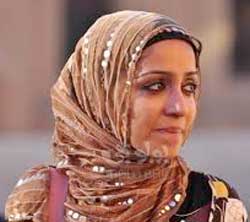'Blasphemous' content restored in Pakistan

The move has been welcomed by free speech activists. The microblogging site said it had changed its earlier decision, to restrict access to the material from within Pakistan in order to comply with local laws, after the government failed to provide sufficient clarification on what content it deemed 'blasphemous'.
"On 18 May, we made an initial decision to withhold content in Pakistan based on information provided to us by the Pakistan Telecommunication Authority," Twitter said in a statement posted on the Chilling Effects Clearinghouse website.
"We have re-examined the requests and, in the absence of additional clarifying information from Pakistani authorities, have determined that restoration of the previously withheld content is warranted. The content is now available again in Pakistan," the company said.
Anti-Islam postings
Chilling Effects is a collaboration between several US law schools which monitors attempts to suppress online content. Twitter works in partnership with the site to publicise requests to withhold its content.
Most of the offending material concerned anti-Islam accounts and an annual online competition to draw caricatures of the Prophet Mohammed, but the accounts of three US porn stars were also listed.
Sana Saleem, a co-founder of the Bolo Bhi non-profit group that advocates free speech, said: "We're very glad Twitter has reversed its decision and not gone the Facebook route. There was significant pressure and so we're very happy. We've also been talking with them."
Facebook earlier this month blocked the popular page of a liberal Pakistani band Laal at the request of the government, angering activists campaigning against censorship. Days later it reversed its decision.
Saleem and other organisations have questioned whether the Pakistan Telecommunication Authority has the constitutional authority to forward such requests to foreign Internet companies, and have called for greater judicial oversight.
She added that the process was open to abuse and was used to suppress political criticism.
"We have an extremely weak legal framework and it's used to limit dissent, or things like blocking Wikipedia pages on breast cancer," she said.
Source: AFP via I-Net Bridge
Source: I-Net Bridge

For more than two decades, I-Net Bridge has been one of South Africa’s preferred electronic providers of innovative solutions, data of the highest calibre, reliable platforms and excellent supporting systems. Our products include workstations, web applications and data feeds packaged with in-depth news and powerful analytical tools empowering clients to make meaningful decisions.
We pride ourselves on our wide variety of in-house skills, encompassing multiple platforms and applications. These skills enable us to not only function as a first class facility, but also design, implement and support all our client needs at a level that confirms I-Net Bridge a leader in its field.
Go to: http://www.inet.co.za









